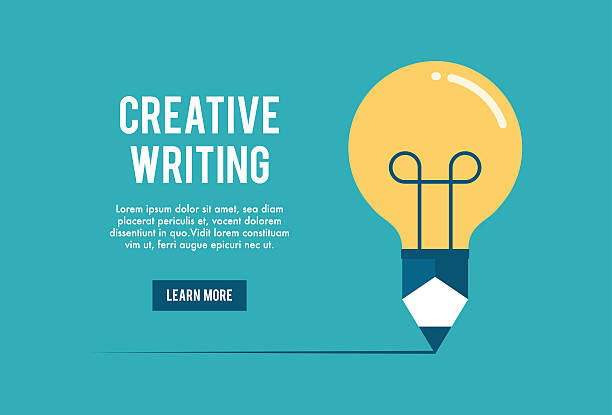People are 22 times more likely to remember information when it’s shared through a story. That’s huge! This little nugget comes from psychologist Jerome Bruner, and it highlights how powerful storytelling is, not just in entertainment, but in branding, too.
You’re not just trying to sell a product or service. You’re trying to connect, to make people feel something. And stories? So, they’re how you do it. Let’s dig into how you can use storytelling to boost your content and branding game, whether you’re running a local business or building your personal brand online.

Why Storytelling Is a Game-Changer
Storytelling is so much more than just stringing together facts. Think about the last time you really connected with a piece of content. It probably wasn’t because it was full of statistics. It was more likely because it made you feel something—whether that was laughter, inspiration, or a sense of connection.
What storytelling does for your brand:
- Creates an emotional connection: Also, people don’t fall in love with businesses; they fall in love with stories.
- Makes your message stick: Stories help people remember the core message you want them to take away.
- Turns your brand into something relatable: A story shows the human side of your business, making you more than just a product or service.
Every Business Has a Story to Tell
Every single business, no matter how small, has a story. Additionally, you might think your story is boring or unimportant. It’s not. So, your story is what sets you apart from everyone else. Whether you’re running a local business or building your social media following, your story gives people a reason to care about what you’re offering.
For local businesses, storytelling can:
- Showcase your journey and why you started your business.
- Highlight your connection to the community and your passion for serving it.
- Give customers a behind-the-scenes look that bigger companies can’t provide.
It’s your chance to make people understand why your business exists and why it matters to them.
Discovering Your Brand’s Story
Before you start throwing stories out there, you need to know your own story. Also, a lot of businesses fall into the trap of thinking their story is all about what they do. Nope. It’s really about why you do it and what you believe in.
Start With Who You’re Talking To
Your story is only as good as the audience it speaks to. So, before you write anything, ask yourself: Who am I trying to reach? So, what do they care about? What keeps them up at night?
For example, a local business owner is likely talking to people who value personal service, community engagement, and reliability. On the other hand, influencers might be trying to connect with people who crave authenticity, creativity, and real-life experiences. Also, you can’t tell the same story to both groups. Know your audience, and your story will flow naturally.

Let Your Values Lead the Way
Your story should reflect your business’s mission and values. Why do you get up every day to do what you do? What drives you to keep going, even when it’s tough? So, that’s the heart of your story.
Examples:
- A local restaurant might share how they’ve been serving family recipes for generations, keeping traditions alive.
- An influencer could talk about how they’ve built a community around positivity and personal growth.
People don’t just buy products or follow accounts. They buy into values and the bigger picture.
Weaving Storytelling Into Your Content
Now that you’ve got a sense of your brand story, let’s talk about how to weave it into your content. Whether it’s a social media post, blog, or email campaign, your story should be present.
Website Copy That Tells a Story
Your website is often the first thing people see about your business. Don’t waste it. Use your “About” page to share something meaningful. Go beyond the basics. Share why you started your business, what keeps you going, and what you hope to achieve. This isn’t just a sales pitch—it’s your chance to show who you are.
On your homepage, think about how your brand’s story can shine. Instead of listing products and services, focus on what makes your business different. For example, a family-owned bakery might talk about their commitment to using local ingredients and keeping family recipes alive.
Social Media That Connects like Storytelling
Social media is all about storytelling. Instagram, TikTok, Facebook—these platforms are built around stories, whether through photos, videos, or even text posts.
For example, local businesses can post about their involvement in the community, behind-the-scenes content showing what goes into making their products, or customer stories. Social media influencers, on the other hand, might share personal experiences, talk about their creative process, or show a day in their life.
Short, authentic stories work wonders here. People love seeing the real side of things, so don’t be afraid to show it.

Blogging That Engages or Storytelling
Blogs are perfect for storytelling because you’ve got the space to go deep. You can share personal anecdotes, highlight customer success stories, or explain the inspiration behind your latest product or service.
Local business owners can blog about how their business got started, how they’ve grown, or even challenges they’ve overcome. Influencers can blog about what motivates them, lessons they’ve learned in their journey, or how they’ve built their audience.
Think of your blog as a way to continue the conversation with your audience. Keep it real, and always tie your content back to the bigger picture—your story.
The Impact of Storytelling on Your Business
You might be wondering if storytelling really makes a difference in the numbers. It does. Storytelling has the power to drive engagement, build loyalty, and ultimately grow your business. When people feel connected to your brand, they’re more likely to stick around and tell others about you.
Here’s how storytelling can impact your brand:
- More engagement: When your content tells a story, people are more likely to stop and pay attention.
- Increased loyalty: Customers who feel connected to your brand are more likely to come back again and again.
- Stronger identity: A consistent brand story builds recognition and trust. Over time, it becomes the thing people associate with your business.

Final Thought: Storytelling in Content
Storytelling isn’t just for writers or marketers. It’s a tool that every business owner, influencer, and entrepreneur can use to build stronger connections with their audience. Whether you’re trying to grow a small local business or build a personal brand, your story is what sets you apart.
At Ard Industry, we get it. We know how important it is to tell a story that’s true to your brand and resonates with your audience. Our team works with local businesses and influencers to craft content that doesn’t just sell—but connects. Ready to turn your story into a powerful marketing tool? Let’s work together to make it happen.








